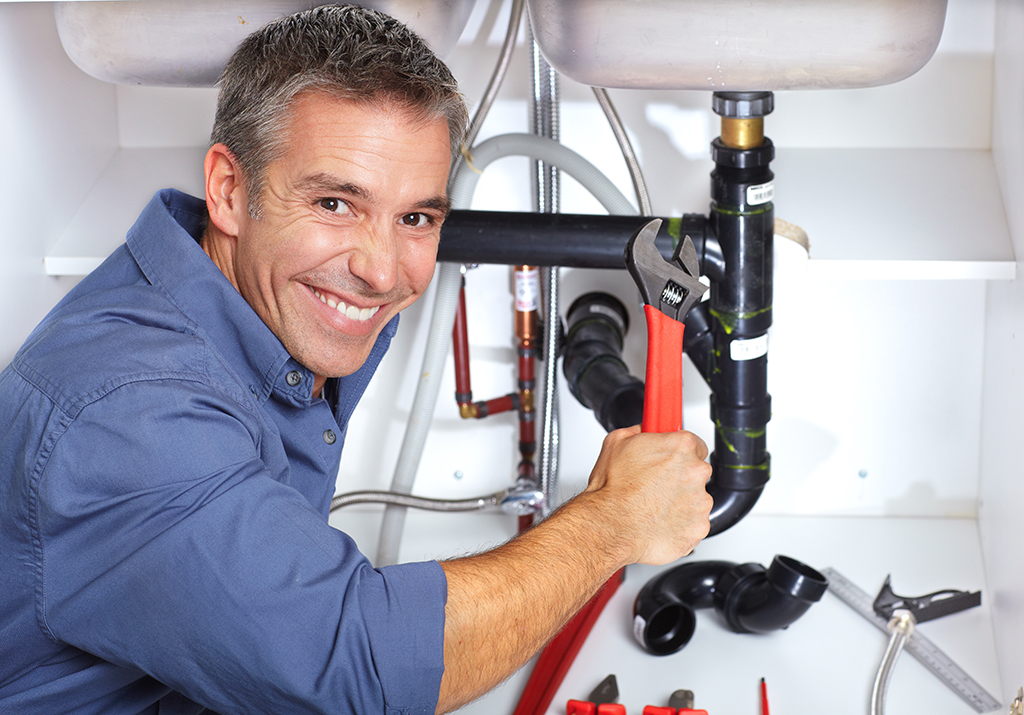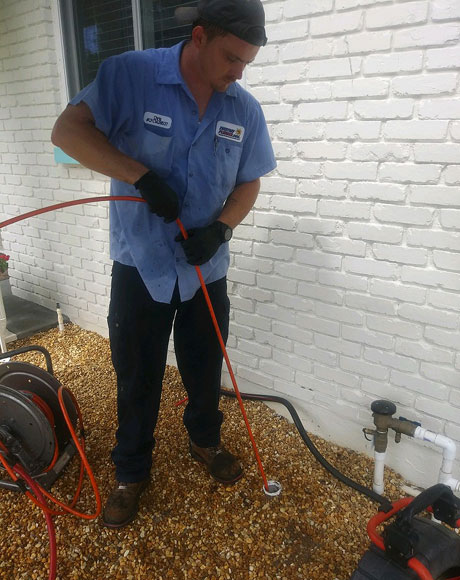Just how to Maintain Your Hot Water Heater and Furnace
Leading 5 Plumbing and Heating Misconceptions Exposed =====================================================
House owners frequently succumb common pipes and home heating misconceptions that can cause pricey blunders. You may think that do it yourself fixings are always cheaper or that large HVAC systems supply far better efficiency. Nonetheless, these mistaken beliefs can result in even more significant concerns and greater expenses down the line. While some think pipe insulation or routine furnace filter adjustments are unnecessary, these straightforward steps can really save you cash and improve your home's effectiveness. If you wish to prevent these challenges and find out the fact about reliable home upkeep, you'll need to check out the leading 5 pipes and heating myths that are typically unmasked.
Secret Takeaways
Misconception: DIY pipes repair services are always more affordable. Reality: Hiring a certified plumbing technician guarantees exact diagnosis and long-term services, avoiding costly mistakes and water damage.
Myth: Oversized a/c systems are better. Truth: Appropriately sized systems maintain constant temperature level and moisture levels, saving power and extending equipment life-span.
Myth: Leaky faucets are a small problem. Fact: Overlooked leakages can waste thousands of gallons of water every year, considerably enhancing utility costs.
Misconception: Pipeline insulation is unneeded. Truth: Insulation boosts power performance, keeps water temperature level, and safeguards pipelines from cold, leading to long-term savings.
Myth: Furnace filters only need occasional altering. Reality: Regular filter changes enhance indoor air top quality and HVAC performance, reducing power use and expenses.
Misconception: Leaky Faucets Are Safe
Leaky faucets aren't harmless. As a matter of fact, they can squander countless gallons of water yearly and increase your utility costs. You might assume a tiny drip below and there is no big deal, yet it adds up promptly. A faucet dripping just one drop per second can squander over 3,000 gallons of water each year! That's enough to fill up a little pool.
Overlooking faucet maintenance is a surefire way to end up with leaks and water waste. Over time, washers and other elements put on down, creating drips. Resolving leaks quickly by changing worn components is vital. Plus, regular faucet cleansing and inspection can help you catch concerns early before they become significant problems.
Don't disregard those pesky drips. Invest a little effort and time into correct faucet upkeep, and you'll conserve water, cash, and the headache of handling a lot more substantial pipes fixings down the line. Your budget and the setting will certainly thank you.
Myth: Larger Heating And Cooling Equipments Are Much Better
Numerous home owners erroneously believe that larger is much better when it concerns HVAC systems, yet this couldn't be further from the fact. Proper a/c sizing is vital for ensuring your system runs effectively and effectively. Bigger isn't always far better – actually, an extra-large cooling and heating system can in fact be damaging.
When a cooling and heating system is also big for your home, it will certainly short-cycle, activating and off a lot more regularly. This reduces the system's effectiveness, wastes power, and can lead to unequal temperature level distribution throughout your home. Additionally, an oversized system will not effectively get rid of humidity, leaving your indoor air feeling clammy and uneasy.
On the other hand, a correctly sized heating and cooling system will run for longer, much more reliable cycles, keeping a consistent temperature level and moisture degree. This not only saves you cash on your energy costs but also expands the life expectancy of your devices.
Collaborate with a professional to determine the ideal a/c dimension for your home and appreciate the benefits of a system that's 'ideal.'
Misconception: Do It Yourself Pipes Repair Works Save Cash
While it might seem like a cost-efficient remedy, attempting DIY plumbing repair services can wind up costing you more in the future.
Certain, you may conserve a few bucks upfront by dealing with that dripping faucet or unclogging that drain yourself, but the potential for costly errors is high if you don't have the proper expert knowledge.
Without the right devices, expertise, and experience, you can wind up making the issue even worse, leading to a lot more costly fixings down the line.
And allow's not fail to remember the possibility for water damage and the frustration of managing that. Pipes systems are complicated, and an apparently small misstep can have major consequences.
Rather than risking it, it's constantly better to call in a qualified and knowledgeable plumbing technician.
They'll be able to detect the issue appropriately and give a long-lasting service, conserving you time, money, and a whole lot of inconvenience in the end.
Myth: Pipe Insulation Is Unnecessary
You might believe that pipeline insulation is an unnecessary cost, but actually, it's a crucial investment that can conserve you cash over time.
Pipeline insulation supplies several advantages that can boost your home's energy effectiveness and lower your utility costs. Shielding your pipelines aids preserve the temperature of the water flowing with them. This implies your hot water heater will not have to work as hard to maintain the water at the preferred temperature, reducing your energy usage.
Additionally, protected pipes stop warmth loss, which can happen via uninsulated pipes, particularly in chillier climates. This warmth loss can trigger your furnace to burn the midnight oil, increasing your energy expenses.
Additionally, pipe insulation can safeguard your pipelines from freezing during the winter months, which can bring about expensive fixings if they rupture. By stopping this issue, you'll save money on plumbing emergencies down the line.
Inevitably, the small upfront cost of pipeline insulation is much exceeded by the long-term energy and expense financial savings it provides.
Misconception: Furnace Filters Never Ever Need Altering
Ignoring to change your heater filter regularly is a common misconception that can bring about inadequate indoor air high quality and decreased cooling and heating efficiency. Unlike popular belief, furnace filters don't last for life and need to be changed regularly as component of regular heating system maintenance.
The sort of filter you utilize can affect just how typically it requires changing. Disposable fiberglass filters might just last 1-3 months, while pleated filters can last as much as 6 months. Multiple-use filters should be cleaned monthly. Stopping working to transform your filter as suggested can cause it to become blocked, requiring your furnace to function more difficult and utilize more energy. This not just drives up your energy costs but also minimizes the life expectancy of your heating and cooling system.
Do not take the chance of the health and wellness and comfort of your home by ignoring your heating system filter. Set a calendar reminder and make filter modifications a regular component of your furnace upkeep routine. Your lungs and your budget will thank you.
Often Asked Inquiries
Just how Frequently Should I Have My Plumbing System Inspected?
You must have your plumbing system checked at the very least once a year to guarantee it's working effectively.
Normal examinations permit you to recognize and resolve any kind of possible concerns prior to they get worse, eventually conserving you money and time.

Keeping up with pipes maintenance frequency is vital for the long-lasting health and wellness of your home's pipes system, as it aids stop costly fixings down the line.
What Are the Signs That My HVAC System Demands Replacement?
If your HVAC system isn't carrying out as efficiently as it when did, it may be time for a replacement.
Indicators include irregular heating/cooling, greater energy expenses, and more constant fixings.
The ordinary lifespan of a cooling and heating system is 15-20 years, so if your own is nearing completion of its life, it's worth taking into consideration an upgrade to improve performance and stay clear of costly failures down the line.
Don't neglect these red flags – act now to keep your home comfortable.
Just How Can I Discover a Dependable Plumbing Professional for My Home?
Discovering a dependable plumbing technician for your home can be tough, however there are a few techniques you can utilize.

Start by requesting individual suggestions from friends, next-door neighbors, or colleagues who've had great experiences with local plumbings.
You can also examine online testimonials to get a sense of the quality of a plumbing professional's job and customer care.
As soon as you have actually determined a few options, be sure to obtain quotes from each one before determining.
What Kind Of Pipe Insulation Is Best for My Home? https://bromleyplumbing.co.uk
When selecting pipeline insulation for your home, the most effective option relies on your details needs.
For ideal power effectiveness, consider foam or fiberglass insulation. Foam is more reliable at decreasing warm loss, while fiberglass is more budget-friendly.
Eventually, the type of pipe insulation that's ideal for your home will certainly rely on variables like the size of your pipelines, your environment, and your spending plan.
Work with an expert to identify the appropriate insulation option that balances performance and cost.
Just how Do I Know When to Change My Heating System Filter?
To keep your heating system's efficiency and interior air quality, it's essential to transform your heater filter regularly.
As a basic policy, you ought to change the filter every 1-3 months, depending on your home's use and air top quality.
Try to find indications like increased dust buildup or lowered airflow – these show it's time to swap out the old filter for a fresh one.
Remaining on top of this basic task will certainly keep your heating system running efficiently and guarantee you take a breath cleaner air.
Conclusion
You shouldn't fall for typical pipes and home heating myths.
Do it yourself repairs might seem more affordable, however they commonly trigger a lot more damages in the long run.
Bigger cooling and heating systems aren't better – they can lose power and produce uneven temperature levels.
Pipe insulation saves you money by boosting power performance, and normal heating system filter adjustments are vital for preserving interior air quality.
Do not get deceived by these misconceptions; educate yourself to avoid pricey blunders.